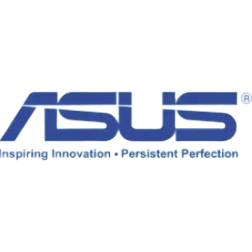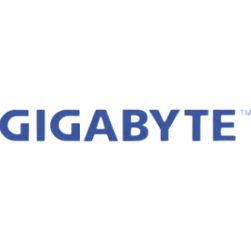
Comparison of GIGABYTE AORUS GeForce GTX 1080 8G e ASUS Radeon RX 5700 It's time to determine which graphics card offers the best performance, what's the difference between them and why?
In front of you is a detailed comparison between the GIGABYTE AORUS GeForce GTX 1080 8G and the ASUS Radeon RX 5700 to help you decide which card is right for your needs. Below we will analyze their specifications, benchmark results and overall performance to help you make the right choice.
Comparing the GIGABYTE AORUS GeForce GTX 1080 8G to the ASUS Radeon RX 5700 in a variety of popular benchmarks reveals key performance differences between the models. Understanding the nuances between these two cards will help you determine the best option for your workload, whether you are a gamer, content creator, or someone who needs raw processing power.
GIGABYTE AORUS GeForce GTX 1080 8G: boasts a maximum frequency of 1.708 GHz+ 6 % GHz + 6%. It is equipped with 8 GBGB of RAM. The memory type is GDDR5X. It was released in Q2/2016.
ASUS Radeon RX 5700: It has a maximum clock speed of 1.465 GHz GHz. It comes with 8 GBGB of memory. The memory type is GDDR6. Released in Q1 Q3/2019.
 Motivi da considerare
Motivi da considerare Posizione nella classifica generale
(sulla base di diversi parametri di riferimento)
Velocità di clock più alta
Intorno a 14% migliore velocità di clock
Posizioni comuni GIGABYTE AORUS GeForce GTX 1080 8G GPU in benchmark popolari, per un confronto con altri modelli.
 Motivi da considerare
Motivi da considerare Posizione nella classifica generale
(sulla base di diversi parametri di riferimento)
Posizioni comuni ASUS Radeon RX 5700 GPU in benchmark popolari, per un confronto con altri modelli.
 GIGABYTE AORUS GeForce GTX 1080 8G
GIGABYTE AORUS GeForce GTX 1080 8G

This section provides a detailed comparison of the fundamental technical specifications of the graphics cards GIGABYTE AORUS GeForce GTX 1080 8G e ASUS Radeon RX 5700. It includes key information such as the GPU chip architecture, the number of processing units, and other core features that directly impact the overall performance of the cards in various applications, including gaming and professional workloads.
Here is a comparison of memory configurations GIGABYTE AORUS GeForce GTX 1080 8G e ASUS Radeon RX 5700. It includes details such as the memory size, type (e.g., GDDR6, HBM2), and bandwidth, which are key factors that determine how efficiently the card handles large textures, data sets, and high-resolution tasks.Larger memory sizes are typically beneficial for demanding applications like 4K gaming and video editing.
This section focuses on comparing the clock speeds of GIGABYTE AORUS GeForce GTX 1080 8G e ASUS Radeon RX 5700. It includes both the base and boost clock speeds, which directly influence the performance of the GPU during intensive tasks. Faster clock speeds typically translate to higher frame rates in games and quicker processing in compute-heavy applications.
This section examines the thermal design of GIGABYTE AORUS GeForce GTX 1080 8G e ASUS Radeon RX 5700. It includes details such as power consumption (in watts) and thermal output during regular operation and overclocking. Efficient thermal management is essential for maintaining stable performance during long gaming sessions or other demanding tasks.
This section compares the cooling systems of GIGABYTE AORUS GeForce GTX 1080 8G e ASUS Radeon RX 5700. It includes details about the types of coolers (e.g., blower or open-air) and the number and size of fans, which play a crucial role in maintaining optimal temperatures during operation.Effective cooling is essential for preventing thermal throttling and extending the longevity of the GPU.
This section compares the connectivity options available on GIGABYTE AORUS GeForce GTX 1080 8G e ASUS Radeon RX 5700. These include the number and type of ports like HDMI, DisplayPort, and others that are essential for connecting displays and external devices.This information helps determine which card offers more versatile or modern connectivity options.
This section compares the technical specifications of GIGABYTE AORUS GeForce GTX 1080 8G e ASUS Radeon RX 5700. It highlights key features such as API support for DirectX, OpenGL, and Vulkan, which are crucial for running modern games and applications efficiently.These specifications ensure compatibility and optimal performance across a wide range of software environments.
This section compares the support for video codecs on GIGABYTE AORUS GeForce GTX 1080 8G e ASUS Radeon RX 5700. It highlights the built-in capabilities for compressing and decompressing video formats such as H.264, H.265 (HEVC), and VP9, which are important for tasks like video editing and streaming.
This section compares the physical dimensions of GIGABYTE AORUS GeForce GTX 1080 8G e ASUS Radeon RX 5700. It includes the size, weight, and slot requirements, which are important considerations for ensuring compatibility with your PC case, especially in smaller or more compact builds.
This section provides additional information about GIGABYTE AORUS GeForce GTX 1080 8G e ASUS Radeon RX 5700. It covers aspects such as release dates, interface compatibility, and other unique features that might not be covered in other sections.This helps users make a more informed decision about the suitability of each card for their specific use case.
By reviewing the results from several well-known benchmarks, you can more accurately assess the performance differences between GIGABYTE AORUS GeForce GTX 1080 8G e ASUS Radeon RX 5700.
Compare the synthetic benchmark results and select the best graphics card for your needs!